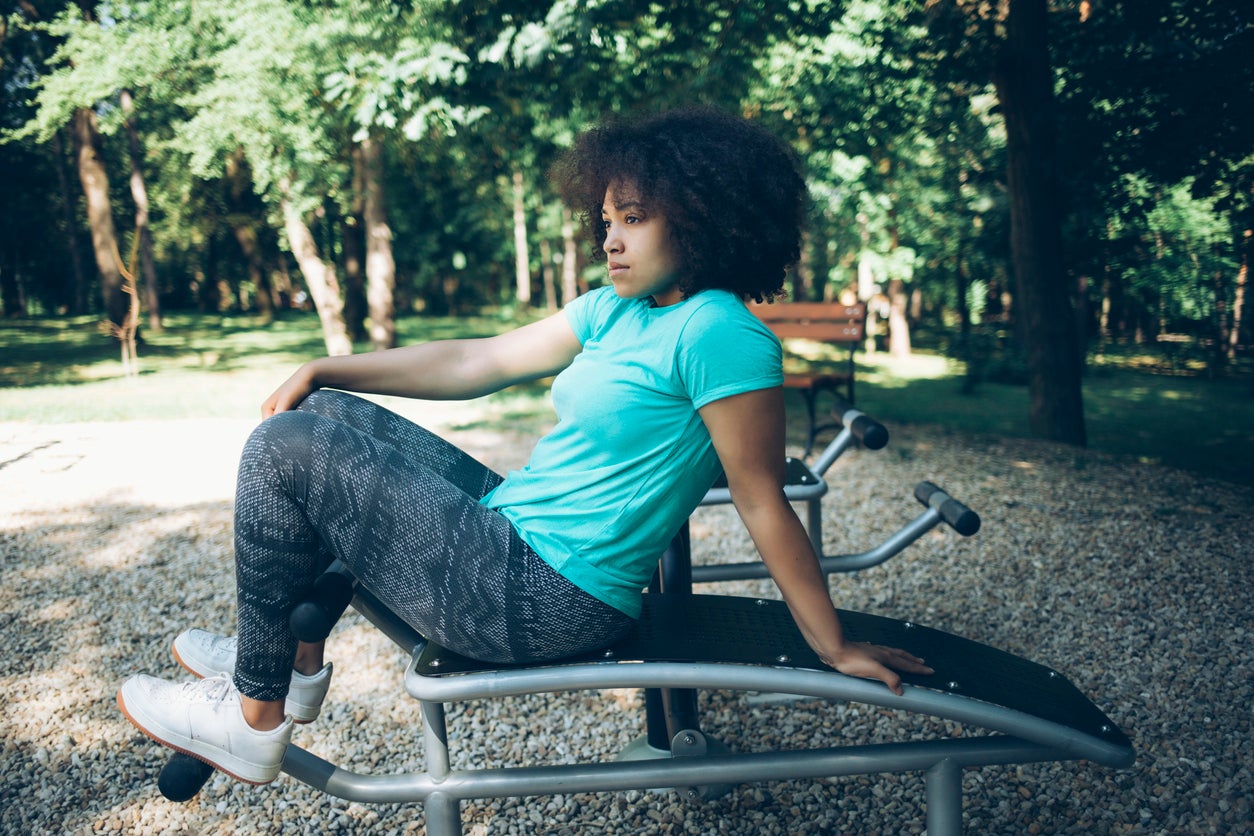What is body neutrality and why do some people prefer it to body positivity?
By concerning yourself less with your body, you free up your mind to think about other things

While the body positive (bopo) movement has hit the mainstream over the past few years, there’s a new concept that’s been gaining traction in the wake of bopo’s mass reach: body neutrality.
If body positivity is about loving your body regardless of whether it fits societies beauty ideals or not, body neutrality is more about simply accepting your body.
If loving your body feels too hard, body neutrality is more attainable. The idea is to think less about what your body looks like, and more about what it’s capable of.
For some, body neutrality is a stepping stone on the journey to self-love. For others, it’s the destination in itself.
Rather than telling yourself you love the fat on your thighs, it’s appreciating that your legs allow you to cycle to work every day.
The bopo message is that we must love our bodies, body neutrality says it’s OK to have days where you don’t.
For many women - for it is mainly women leading the body neutrality charge - as the body positive movement gained speed, they felt it wasn’t representative of them any more.
“It has become a buzzword, it has alienated the very people who created it,” blogger Stephanie Yeboah told The Guardian. “Now, in order to be body positive, you have to be acceptably fat – size 16 and under, or white or very pretty. It’s not a movement that I feel represents me any more.”
Perhaps one of the best known examples of this was the storm of outrage which erupted earlier this year after Made In Chelsea’s Louise Thompson published a healthy eating and fitness book called Body Positive.
Despite the bopo movement’s original message of inclusivity, as it has evolved, some disabled women, transwomen and women of colour have felt increasingly excluded and have thus found another option: body neutrality.
“If this movement had been called fat acceptance in the first place, none of these people would have jumped on it because it’s got the word ‘fat’ in it,” Yeboah said.
“Fat is still associated with ugly. It’s very easy to say we shouldn’t concentrate on our bodies, but for some of us we have no choice, because everyone else is.”
Body neutrality is not a new concept though - the term first appeared online in 2015 and a Vermont wellness retreat launched programmes teaching people about it in 2016.
In the eyes of some people, the main purpose of body neutrality is to encourage women to spend less time concerned by their bodies thus freeing up more mental space to think about other things.
“Obsessing, silently judging ourselves, and self-criticism take up a lot of mental energy,” New York psychotherapist Alison Stone told Huff Post. “More importantly, these types of thoughts prevent us from enjoying experiences and being fully present in our lives.”
So can body positivity and body neutrality exist alongside each other?
“I think we should be striving for both but they are very different things,” anti-dieting advocate Alice Dalrymple, 27, tells The Independent. “A lot of people think that body positivity is about loving your body and body neutrality is a starting point for appreciating what your body does rather than what it looks like.”
However Dalrymple points out that this can be problematic because some people’s bodies can’t get them from A to B and that doesn’t mean it’s not worthy of love or neutral feelings.
“Body neutrality should be rooted in not basing your worth on anything to do with your body - its abilities or its looks - because those things aren’t what make you the person you are,” Dalrymple explains.
“Body positivity is a political movement that has become diluted by commercialism and misunderstanding. Body positivity started to give marginalised bodies representation and isn’t about self-love.”
And as the body neutrality movement has developed, some body positive advocates have reassessed their stances.
One of the biggest names in the world of body positivity is Megan Crabbe, also known as BodyPosiPanda.
People across the world follow her for her posts encouraging others to love their bodies of all shapes and sizes, but she has recently admitted that when establishing her account, she should have made a clearer distinction between body positivity and body confidence.
“If we’re only having conversations about body image and not about body politics then we’re not fighting for all bodies – just our own bodies,” she told The Guardian. “The things I’m saying, people in fatter bodies have been saying for decades. It’s just that, coming out of my mouth, its more palatable to the masses.”
So how do you put body neutrality into practice?
In the image-based society in which we live, adopting a body neutral mindset can be easier said than done.
However the main thing to try is to focus on being healthy, rather than your body’s appearance. Appreciate when you feel strong and what your body does for you, and don’t worry if you catch yourself feeling negative thoughts towards your body - acknowledge those thoughts and don’t judge them.
Body neutrality doesn’t mean you can’t love your body too, but it’s freeing yourself from the pressure to do so.
Join our commenting forum
Join thought-provoking conversations, follow other Independent readers and see their replies
Comments
Bookmark popover
Removed from bookmarks